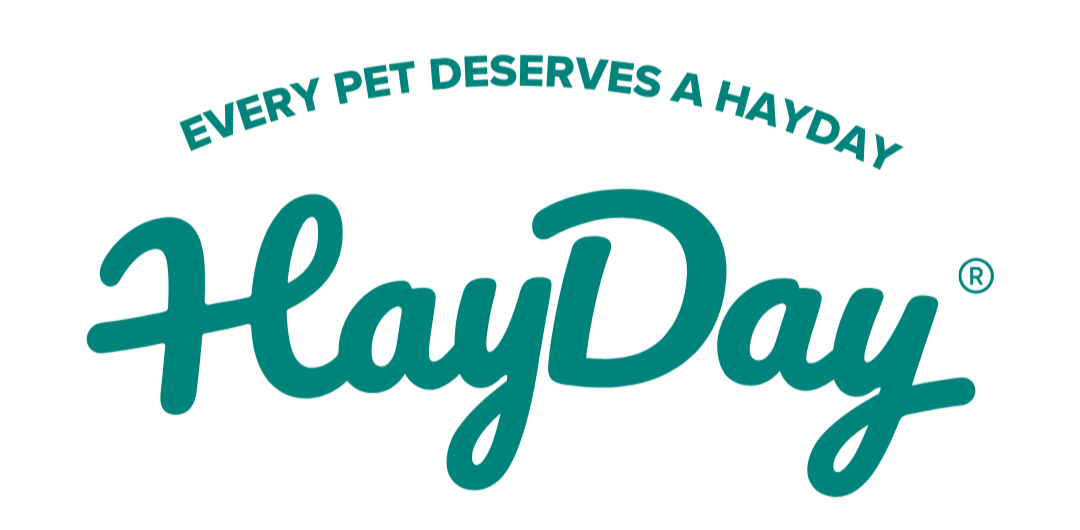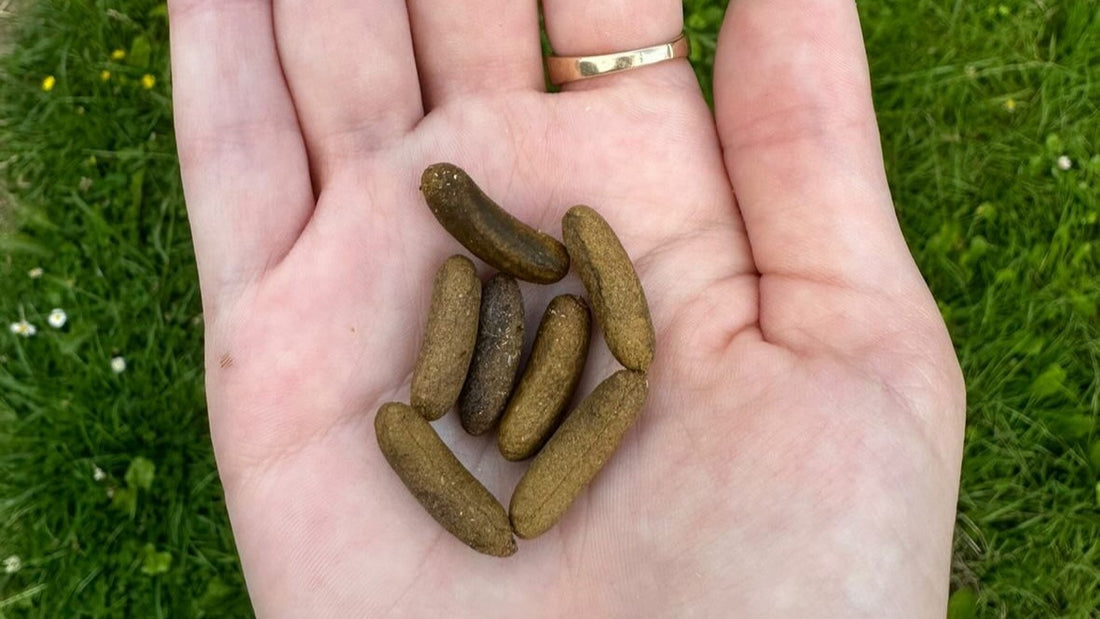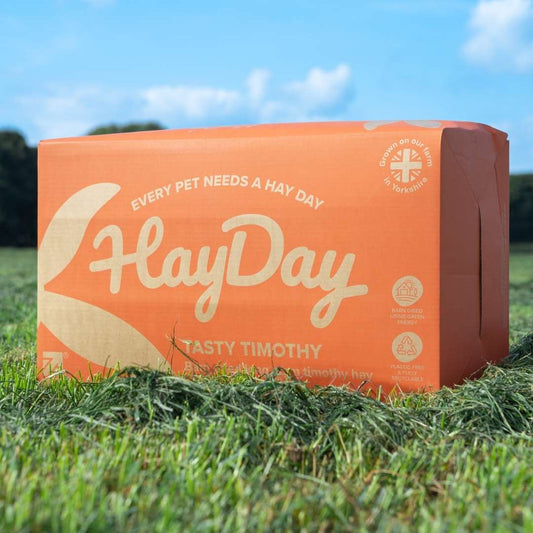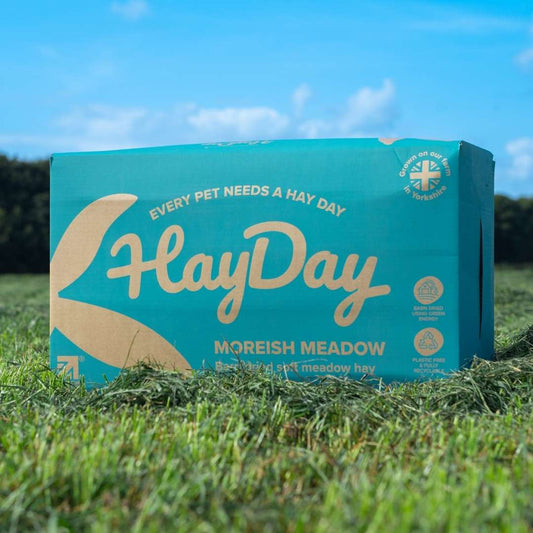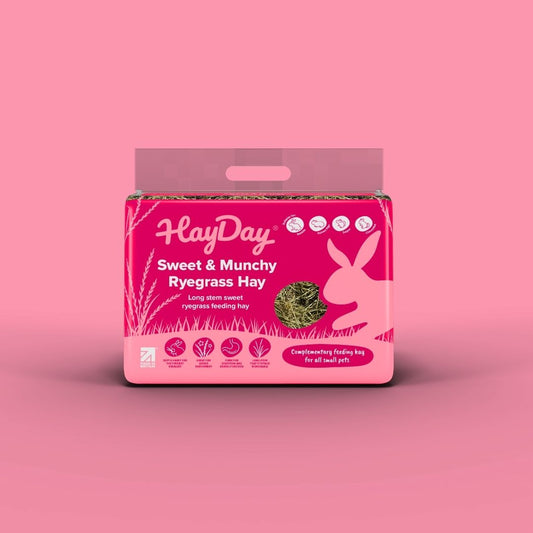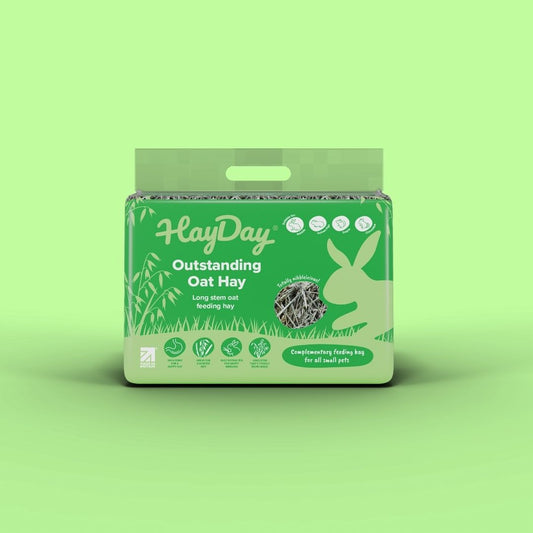As a small animal owner, it’s important for you to know the symptoms to look out for in case your guinea pig is acting out of the ordinary (i.e. not eating or their eating patterns have changed). Knowing the signs can be extremely beneficial and here’s our advice on how to keep your guinea pig happy and healthy.

Image: Two guinea pigs (@percivalpiggyandfriends)
The standards
As a standard for small animal owners, you should be checking your small animal every day for any potential symptoms or issues. The RSPCA recommends to:
- Check their front teeth and nails every week as these grow quickly! Only vets should correct overgrown/misaligned teeth.
- In warm weather, it's especially important to check the fur and skin around their rear end twice a day. Urine staining and droppings stuck attract flies and can lead to flystrike (which is often fatal).
- Take them for vet check-ups at least once a year.
- Get them treated for parasites such as mites and worms, as advised by your vet.
- Only use prescribed medicine - only give your guinea pigs the medicines recommended for them by a vet.
Key signs and Symptoms to look out for
According to the PDSA, these are some of the signs to look out for in unwell guinea pigs:
- Eating less or not eating
- Signs of pain for example grinding their teeth, not wanting to be touched or squeaking loudly
- Big weight loss or weight gain (especially over a short time)
- Swellings, lumps and bumps
- Fast, noisy or heavy breathing
- Diarrhoea
- Drinking or peeing more
- Lack of energy/sleeping more than usual
See the full list of guinea pig health symptoms on the PDSA website.
Health problems that may occur in guinea pigs
Breathing problems
- Breathing quicker than normal
- Wheezing
- Sneezing
- Discharge from the nose
- Heavy breathing
- Struggling to breathe
As always, if there is anything you’re ever unsure of, we would best recommend seeking a vet’s advice immediately.
Dental issues
Like rabbits and other small animals, guinea pigs have teeth that will constantly grow throughout their lives. Having a high fibre diet is essential to ensure that your small animal's teeth health is kept in check. When choosing your small animal’s forage choice it is important to consider long stem hay. Long stem hay helps assist with the maintenance of healthy dental function.
Stomach Issues
A healthy gut is super important in small animals, and guinea pigs are no exception! With the correct diet, which is recommended to be; 85-90% grass or hay, a small handful of leafy greens and one egg cup a day of pelleted guinea pig food. As an idea, here’s an example of healthy gut movement (AKA jelly beans)!

Image: Example of healthy guinea pig gut health by @xlivspiggiesx
Vitamin C Deficiency
Did you know that adding vitamin C to your guinea pig’s diet is vital as guinea pigs cannot produce vitamin C themselves? If relying on Vitamin C from their food, we would recommend feeding fresh greens which are high in vitamin C to avoid any issues with their tummies, teeth and vitamin C levels.
Some of the vegetables that the PDSA recommends you can safely feed your guinea pig to help with their vitamin C levels include:
- Asparagus
- Kale
- Parsley
- Red Cabbage
- Spinach
As always, if you notice any changes in your guinea pig’s behaviour or eating patterns, always consult your vet. And as standard, if you’re wanting to change their diet, make sure any changes are done over a gradual period.
Are you a guinea pig owner that stresses about arrangements when going on holiday? We spoke to Anna of Fluffies and Friends and she has the perfect set-up for boarding your guinea pigs!
